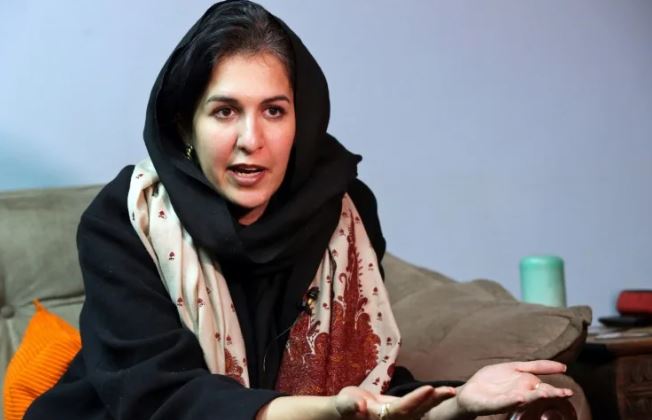The Taliban have put humanitarian organizations in Afghanistan “between a rock and a hard place” by banning them from employing women, leaving their vital work in one of the world’s most needy countries in the air.
“We have had to make a very difficult decision to know whether or not we should continue without our female staff. And we have come to the conclusion that it was impossible for us to continue our activities in the country without them,” explains Samira Sayed-Rahman, manager of communication of the International Rescue Committee (IRC).
On December 24, the Ministry of Economy announced that non-governmental organizations, local and international, were prohibited from working with Afghan women due to “serious complaints” about non-compliance with the hijab, which in Afghanistan must cover the entire body, including the face.
As of the following day, numerous NGOs such as IRC, which has 3,000 women among its collaborators, announced that they were suspending their activities and asked the Taliban to lift the veto.
Some 1,260 NGOs operate in Afghanistan, according to the latest figures provided by the Ministry of Economy to AFP, and employ thousands of women in key positions in their food aid, health care, education or sanitation programs.
“Aid workers are involved in identifying, registering and training women beneficiaries,” explains Reshma Amzi, deputy manager of CARE Afghanistan, which had 38% women on her staff.
– ‘Obey or march’ –
In this deeply conservative country, only a woman is allowed to approach a female beneficiary.
“It is very difficult for a man to come into contact with a woman if he is not related to her,” says Azmi.
But for the Taliban, help can reach families through the men of the household, which justifies doing without female employees.
Excluded the same week from universities also for allegedly violating the dress code, women are increasingly isolated and invisible in Afghanistan.
They have also been banned from numerous public jobs and cannot travel unless accompanied by a male relative.
The NGOs were for some of them a lifeline and allowed them to earn a salary that supported their families.
“The Taliban have cornered us and put us between a rock and a hard place,” says an anonymous aid official.
“They have told us: ‘you have to choose between obeying our rules or marching’ and watch the situation get worse,” he adds.
Since the withdrawal of foreign forces from the country, the paralysis of international aid, which represented 75% of the national budget, has plunged Afghanistan into a deep humanitarian crisis.
– Danger of famine –
Some 22.8 million people, more than half the country’s population, are in a situation of food insecurity and three million children are at risk of malnutrition, according to economists.
“Last winter, it was humanitarian aid that prevented a famine in the country,” says Sayed-Rahman. “If we are not able to renew this aid, we will face a horrible situation.”
The announcement caught NGOs off guard who, even during 20 years of fighting between the Taliban and US forces and their allies, were able to work with women in areas under Islamist control.
“There were a lot of negotiations (with the local Taliban), but even at that time we had a lot of female staff,” says an organization official.
Since the return of the Taliban in August 2021, “Action Against Hunger, like the rest of the humanitarian organizations, respects the values, tradition and culture in Afghanistan and has agreed to implement all the requests” of power, says Samy Guessabi, director of this NGO in Afghanistan.
In the offices, women and men are separated, a ‘mahram’ (family man) accompanies the workers on their journeys and the use of the hijab is respected, he says.
Furthermore, since the end of the war, they have had access to isolated populations previously “virtually inaccessible, not only for humanitarian actors, but also for government and international actors,” says Sayed-Rahman.
The associations contacted by AFP say they want to prioritize dialogue and hope that the Taliban will reconsider their decision.
Otherwise, they avoid ruling on a definitive withdrawal from the country.
“Whoever is in power, we are neutral. The goal is to reach the people who need it and no other,” says Reshma Azmi.

